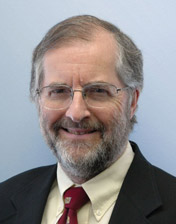Lehigh University
Office or Center Name Here
2009 Fazlur R. Khan
Distinguished Lecture Series
Honoring a legacy in structural engineering and architecture
Distinguished Lecturers |
||||
 |
 |
 |
||
| LESLIE E. ROBERTSON |
WILLIAM F. BAKER |
BRUCE R. ELLINGWOOD |
||
The Architect & the Structural Engineer - Partners in Design |
Engineering the World's Tallest: Burj Dubai |
Abnormal Loads and Progressive Collapse - Assessment and Mitigation of Risk |
||
LESLIE E. ROBERTSON
 Leslie E. Robertson Associates, R.L.L.P., New York, NY
Leslie E. Robertson Associates, R.L.L.P., New York, NY
The Architect & the Structural Engineer - Partners in Design
click here to view video
Friday, February 20th, 2009
4:10 P.M.
Sinclair Laboratory Auditorium
Overview:
The pendulum has swung from an extreme where the Engineer dominated the design of buildings and structures to an extreme where the Architect has become the nearly undisputed leader...sometimes with little or no concern of the talents, aesthetic sense, and opinions of the Engineer. This lecture examines a little of the messages to be found on both sides of this pendulum. As well, making use of a myriad of PowerPoint images, buildings and structures, large and small, will be examined in the light of the significant impact of the functional, the sustainable, and the aesthetic sense of the Structural Engineer.
MORE DETAILS available on Robertson's presentation.
WILLIAM F. BAKER
 Structural & Civil Engineering, Partner
Structural & Civil Engineering, Partner
Skidmore, Owings & Merrill, Chicago & London
Engineering the World's Tallest: Burj Dubai
click here to view video
Friday, March 20th, 2009
4:10 P.M.
Sinclair Laboratory Auditorium
Overview:
The Burj Dubai represents the state-of-the- art in tall building design. Once completed, it will be not only the world's tallest building, but the tallest man-made structure ever created. From the project's initial concept design through construction, the combination of several important technological innovations results in a building of unprecedented height. This lecture will describe some of the structural design methods, materials, and construction technique which enable the creation of a superstructure that is both efficient and robust.
MORE DETAILS available on Baker's presentation.
BRUCE R. ELLINGWOOD

Distinguished Professor & the Raymond Allen Jones Chair
Civil Engineering & Environmental Engineering
Georgia Institue of Technology
Abnormal Loads and Progressive Collapse - Assessment and Mitigation of Risk
click here to view video
Friday, April 17th, 2009
4:10 P.M.
Sinclair Laboratory Auditorium
Overview:
A progressive (or disproportionate) collapse is one that initiates from a local structural failure and propagates, by a chain reaction mechanism, into a failure that involves a major portion of the structural system and is disproportionate to the local initiating damage. Such collapses can initiate as a result of extreme environmental or abnormal loads or design/construction errors. Public awareness of building safety issues has increased markedly in recent years as a result of well-publicized natural and man-made disasters.
The presentation summarizes design strategies to minimize the likelihood of progressive collapse, and prospects for the0 implementation of general provisions in national standards such as ASCE Standard 7, Minimum design loads for buildings and other structures.
MORE DETAILS availalable on Dr. Ellingwood's presentation.
2009 Fazlur R. Khan Distinguished Lecture Series Announcement Flyer (PDF)
The Fazlur R. Khan Distinguished Lecture Series has been initiated and organized by Dan M. Frangopol, the first holder of Lehigh's Fazlur Rahman Khan Endowed Chair of Structural Engineering and Architecture.

Brunswick Building
The Fazlur R. Khan Distinguished Lecture Series honors Dr. Khan's legacy of excellence in structural engineering and architecture.